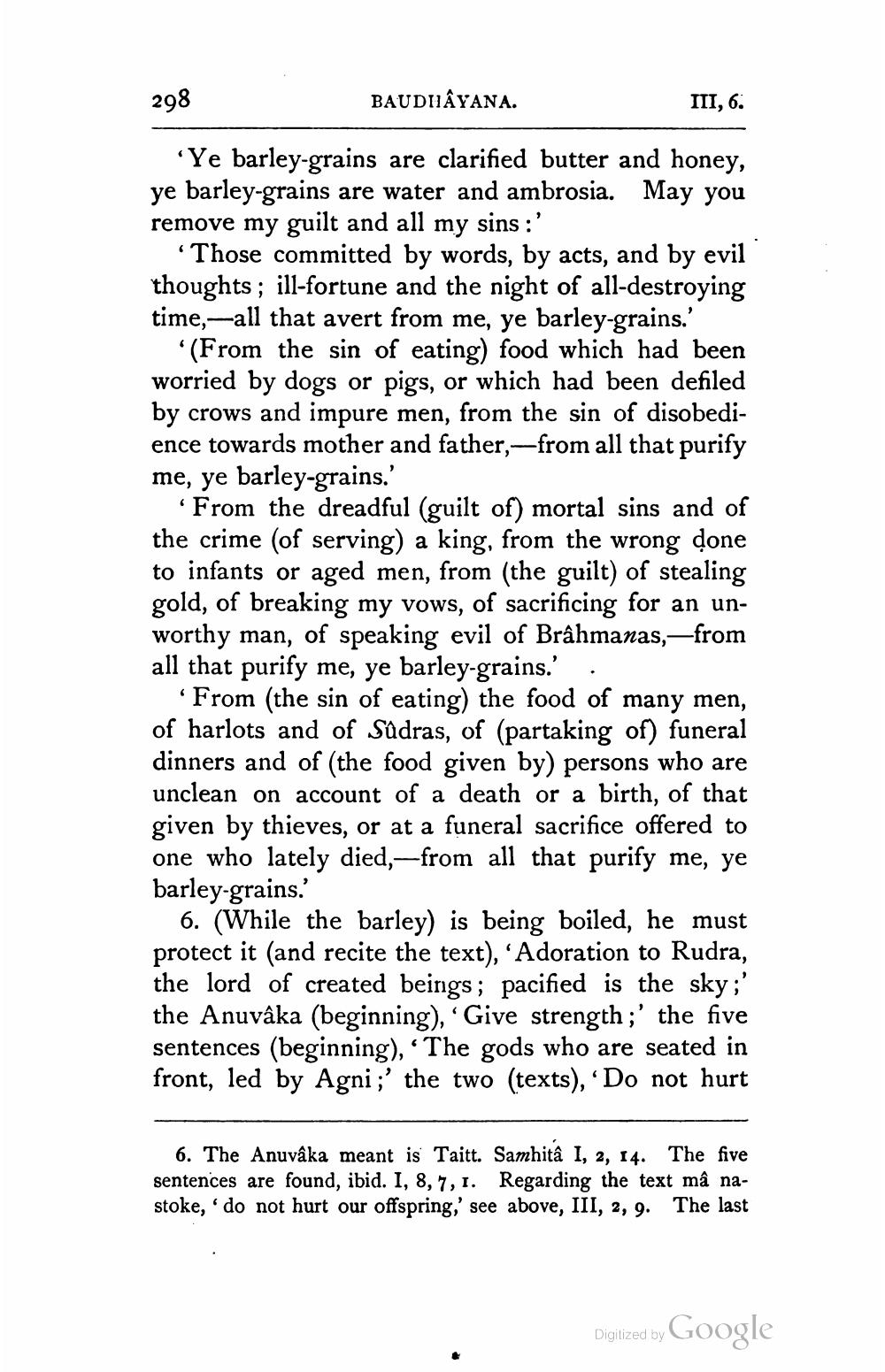________________
298
BAUDHAYANA.
III, 6.
Ye barley-grains are clarified butter and honey, ye barley-grains are water and ambrosia. May you remove my guilt and all my sins :'
'Those committed by words, by acts, and by evil thoughts ; ill-fortune and the night of all-destroying time,-all that avert from me, ye barley-grains.'
'(From the sin of eating) food which had been worried by dogs or pigs, or which had been defiled by crows and impure men, from the sin of disobedience towards mother and father,-from all that purify me, ye barley-grains.'
From the dreadful (guilt of) mortal sins and of the crime (of serving) a king, from the wrong done to infants or aged men, from (the guilt) of stealing gold, of breaking my vows, of sacrificing for an unworthy man, of speaking evil of Brâhmanas,-from all that purify me, ye barley-grains.' .
From (the sin of eating) the food of many men, of harlots and of Sûdras, of (partaking of) funeral dinners and of the food given by) persons who are unclean on account of a death or a birth, of that given by thieves, or at a funeral sacrifice offered to one who lately died,—from all that purify me, ye barley-grains.
6. (While the barley) is being boiled, he must protect it (and recite the text), 'Adoration to Rudra, the lord of created beings; pacified is the sky;' the Anuvâka (beginning), Give strength;' the five sentences (beginning), “The gods who are seated in front, led by Agni;' the two (texts), 'Do not hurt
6. The Anuvâka meant is Taitt. Samhitâ I, 2, 14. The five sentences are found, ibid. I, 8, 7, 1. Regarding the text mâ nastoke, do not hurt our offspring,' see above, III, 2, 9. The last
Digitized by Google




